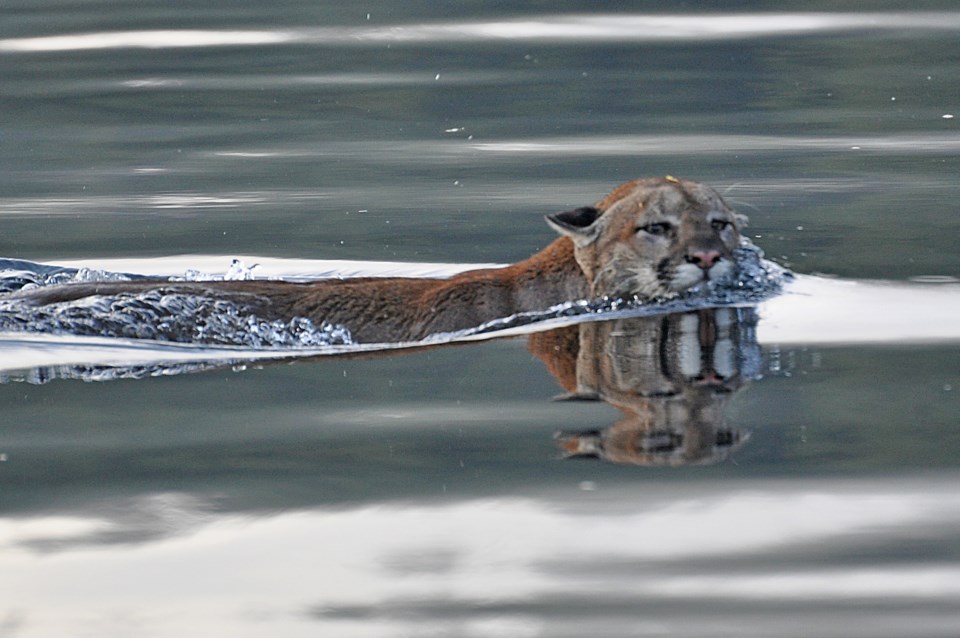It's a cat of many names, and its habitat stretches from the Yukon all the way south to Argentina.
Referred to as a puma, cougar, and a mountain lion, these wild cats cause a scare wherever they are found. Not only do they stealthily stalk their prey through dark woods, but they are also incredibly powerful. In fact, one of these sleek felines can leap a jaw-dropping 40 feet in a single bound.
With this in mind, the sand-coloured cats are relatively reclusive, and they tend to avoid human contact. Attacks on humans are rare, but they can be fatal. However, there are a number of things you can do in an encounter to stay safe.
How do they hunt?
Wildsafe B.C. notes that mountain lions will "stalk an animal and then use an explosive series of bounds to leap on their prey."
A large male puma can weigh over 100 kg, but most adults are in the 60-80 kg range; females are about 25 per cent smaller. They have a flexible spine that allows them to easily maneuver around obstacles, and they have keen eyesight.
According to the University of Victoria, roughly 4000 of the solitary creatures live in Canada. Of that number, a whopping 3500 call B.C. home. Astonishingly, a quarter of the B.C. population live on Vancouver Island, yet the Island only represents 3 per cent of the total land mass in the province. As such, the Island has the highest concentration of cougars anywhere in the world.
The cougars of the island are primarily found in forested mountain areas, but there is a higher density in the northern half of the Island. UVic states that the population hovers around the 600-800 range, but population estimates are difficult because the animals are solitary. In addition, the university reports that the animals, "tend to remain on the eastern side of the island, where there is less climatic variation, and a higher density of black-tailed deer."
When mountain lions are hungry, however, they will search for alternative sources of food. Unfortunately, this often means that the big cats will prey on house pets and livestock, and are subsequently killed. Nevertheless, the Island puma population is considered healthy, and their primary prey, the black-tailed deer, is plentiful. UVic adds that pumas, similar to wolves, also serve as an important control for, "lower trophic levels, starting with the deer."




